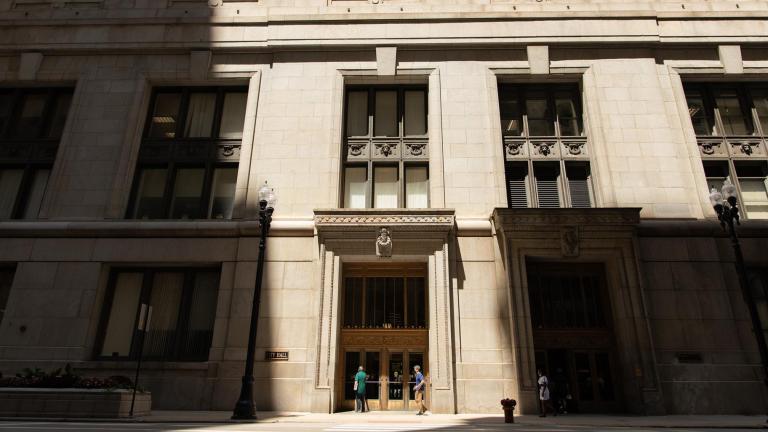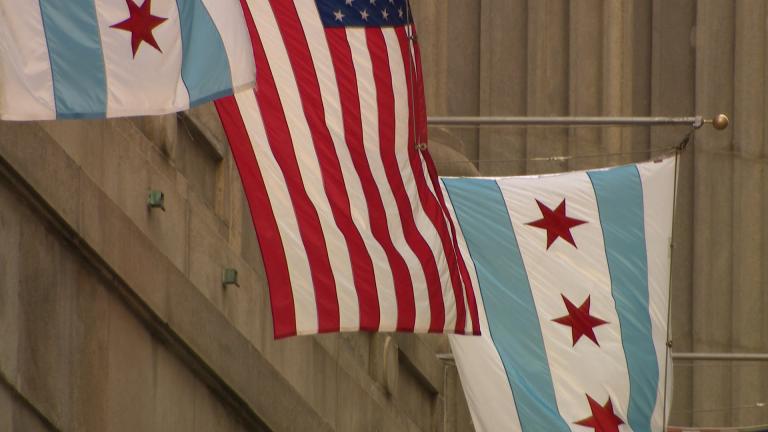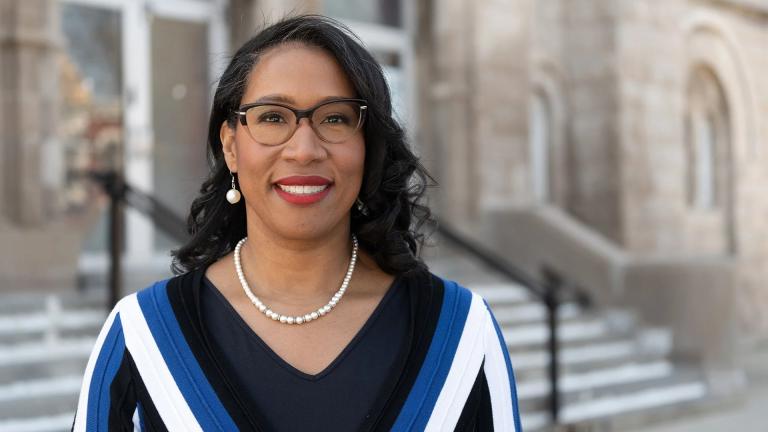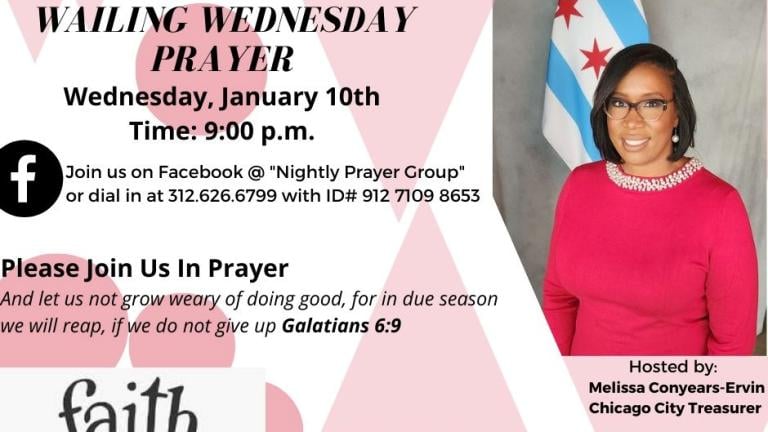Calling Chicago’s campaign finance system broken, the chair of the City Council’s Ethics Committee urged his colleagues on Tuesday to approve a plan to use taxpayer money to match small contributions from Chicagoans to candidates for City Council.
Ald. Matt Martin (47th Ward) said the plan, which is estimated to cost approximately $9.5 million per election, was designed to reduce the influence of “big special interest donors.”
“Doing this will amplify the voices of everyday Chicagoans in our elections,” Martin said at a City Hall news conference. “Because elected officials should be accountable to all of us, not just the wealthy, not just corporate special interests.”
Martin introduced the measure that he has dubbed the Chicago Fair Elections Program at the June 12 City Council meeting, only to see it immediately blocked from advancing to a City Council committee hearing and vote by Ald. Jason Ervin (28th Ward), an ally of Mayor Brandon Johnson.
Read the proposed legislation here.
Chicago is largest American city without some form of public financing for its elections, supporters of the push said. The next election for all 50 members of the City Council is set for 2027.
Alisa Kaplan, the executive director of Reform for Illinois, a group that tracks campaign contributions and lobbies for increased transparency in government, said the measure would “open the doors of our democracy to people of all walks of life.”
Kaplan also said the measure would serve as a “powerful anti-corruption tool.”
“It would reduce the costly pay-to-play politics that Chicago has unfortunately become famous for and can taint the efforts of the city’s many honest public servants,” Kaplan said.
Thirty-eight members of the City Council have been convicted of crimes since 1968.
If implemented, candidates for City Council can opt in to the program and get an initial contribution of $50,000 once they qualify for the ballot. The program would give candidates $12 in matching funds for every $25 contribution from a Chicagoan. Additional contributions from the same Chicagoan up to $150 would be get $9 in matching funds for each $1 contributed.
That means participating campaigns could get a maximum of $150,000 in matching funds, in addition to the initial $50,000 for qualifying for the ballot, bringing the total to $200,000 — in line with the average cost of mounting a competitive campaign for the City Council.
To qualify, candidates would need to raise at least $17,500 from at least 100 contributors, including 60 contributors who live in the ward they are running to represent on the City Council.
Participating candidates would also agree to abide by stricter limits on raising campaign cash than those set by current state law.
For example, individuals could give candidates no more than $500 per election. The state limit is now $6,900, records show.
The plan would also limit contributions from political action committees to $12,000 per election. The state limit is $68,500, records show.
The plan would also prohibit candidates from contributing more than $5,000 to their own campaign, according to the proposal.
Candidates who take taxpayer funds must also participate in at least two public debates during the primary contest and two more if they advance to the general election, according to the proposal.
Ald. Maria Hadden (49th Ward) said giving individual Chicagoans a louder voice in City Council elections will strengthen the city’s civic life.
“This is how we improve our democracy,” Hadden said.
At the same meeting that Martin introduced the proposal for public financing that he has been working on for a year, two alderpeople blocked a vote on his plan to tighten Chicago’s ethics ordinance to ban registered lobbyists from sending campaign cash to Chicago mayors — and those running to be the city’s chief executive.
The plan would enshrine into law a 2011 executive order issued by former Mayor Rahm Emanuel that sought to ban lobbyists from contributing to his campaign committee. The order sought to ban those found to have violated it from re-registering as a lobbyist, preventing them from pressing city officials on behalf of their clients.
The Chicago Board of Ethics urged the City Council to tighten the city’s ethics ordinance after it determined unanimously in April that it had no choice but to dismiss enforcement actions against City Hall lobbyists who donated to Johnson’s campaign fund.
Johnson returned all of those contributions, but did not back the effort to change the city’s law.
The proposal to enforce the restriction on lobbyists’ contributions to mayors and mayoral candidates could get a vote at the July 17 meeting.
After the June 12 City Council meeting, Johnson told reporters it was time to stop “nibbling around the edges” of reform.
“If the goal is to eradicate the proclivity of corruption, then let’s get at that,” Johnson said. “Let’s all work together for public financing.”
Martin said he welcomed the mayor’s support for public campaign financing, but added that he had not yet discussed the specifics of his proposal with the mayor.
Johnson’s 2023 campaign platform called for public financing of municipal elections.
Contact Heather Cherone: @HeatherCherone | (773) 569-1863 | [email protected]






